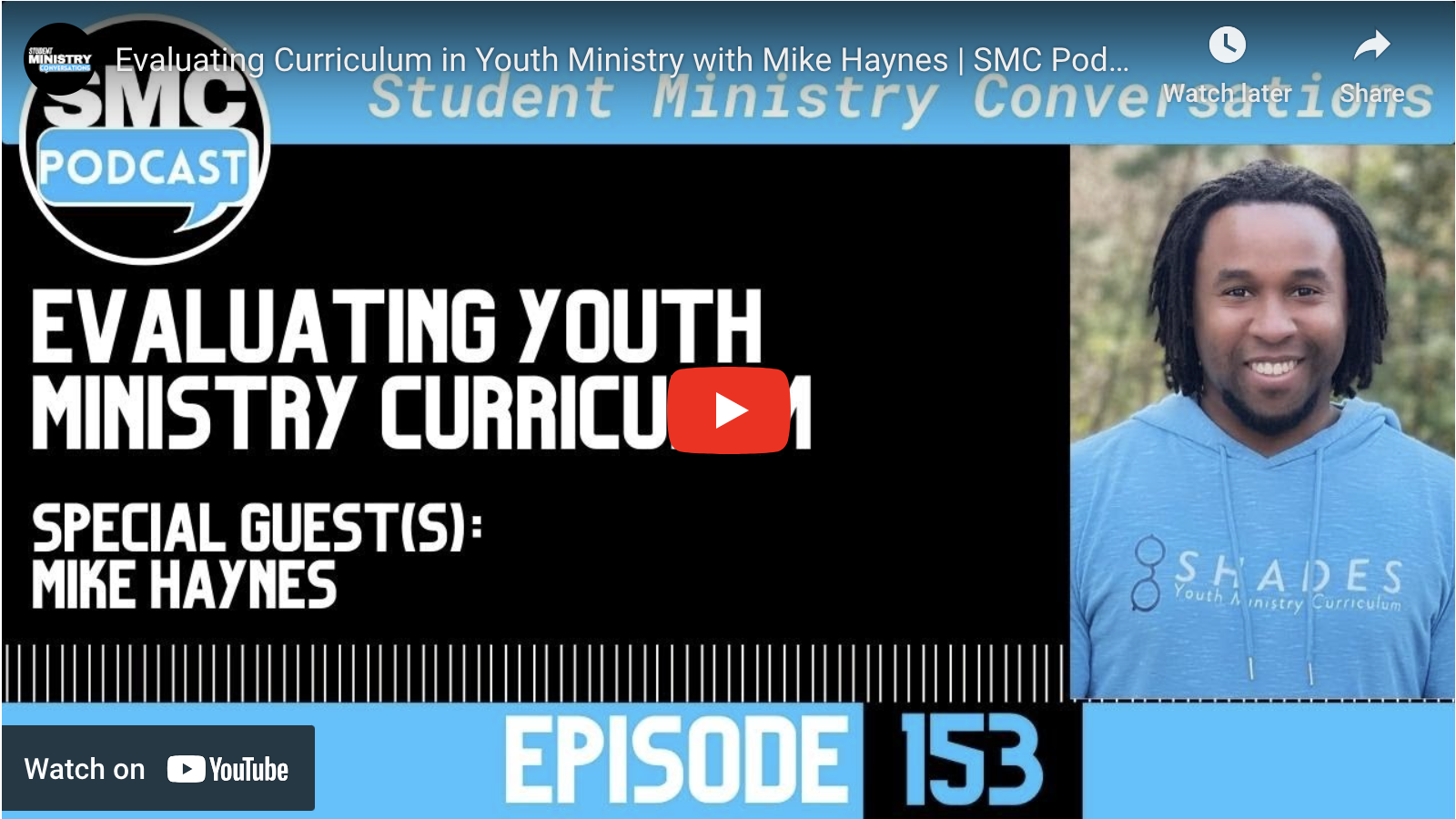
6 Steps Toward Planning Your 2026 Youth Ministry Year
It’s that time again. It’s December, which means we have to plan for the year. I don’t know about you,

There are an endless supply of curriculums on the market. How do you evaluate which one is the best fit for your ministry? Check out this podcast episode from Student Ministry Conversations to learn some best practices for evaluating and utilizing youth ministry curriculum in your ministry! The entire podcast episode is fantastic, but in case you just want the highlights, we’ve provided some highlights from the transcript of the episode below the video.

Defining an Effective Curriculum
Brent: If you’ve been in youth ministry for a few years and been online, you know there’s no shortage of curriculum. It’s everywhere, and the challenge becomes figuring out how to evaluate it. How do you define an effective curriculum in youth ministry?
Mike: Great question. I think for most of us, the first word that comes to mind is “discipleship.” But here’s the thing: discipleship isn’t something your curriculum does. It’s something you do. Your curriculum doesn’t disciple your students—you, your leaders, and your students’ parents do. Discipleship is about relationships and modeling faith.So, when it comes to curriculum, it should do two things:
Give students a clear framework for their faith.
While curriculum doesn’t disciple students, it should equip you to do so by helping them understand their faith more clearly.
Simplify your life as a youth pastor.
Some curriculums actually make your job harder, and that’s counterproductive. You need a curriculum that frees up time and energy for discipleship.
Brent: That’s a helpful way to look at it. What’s the most important factor to consider when choosing or creating a curriculum?
Mike: The gospel has to be central. I can’t think of anything more important. You can talk about family, anxiety, peer pressure, or any number of topics, but if the gospel isn’t the foundation, you’re missing the mark. Students need to see their lives through the lens of the gospel. If the curriculum doesn’t guide them there, it’s not the right fit.
Tailoring Curriculum to Your Ministry
Brent: Every youth ministry is unique. How do you assess whether a curriculum fits your specific group of students?
Mike: First, consider the generational language. Each generation has its own way of seeing the world. For Gen Z, the language is mental and emotional health. They value authenticity and want to know how faith intersects with their struggles.Second, contextualize the curriculum for your setting. What works in suburban Virginia might not resonate in an urban or rural environment. Make sure the curriculum aligns with your church’s culture and theology. And if it doesn’t, do the work to adapt it.
Brent: Sensitive or controversial topics come up in youth ministry. How do you handle these within a curriculum?
Mike: It depends on the topic. Some issues, like anxiety or peer pressure, can be tackled from the stage. Others, like sexuality or politics, might be better addressed in a dialogue format rather than a monologue.At G Shades, we focus on teaching students how to approach these issues through a gospel lens. We don’t aim to give all the answers but to equip students to think biblically. That way, they’re prepared to navigate these conversations long after they leave your ministry.
If that conversation around evaluating youth ministry curriculum resonates with you, please check out the free trial of our youth ministry curriculum.

It’s that time again. It’s December, which means we have to plan for the year. I don’t know about you,

A new year always brings new faces, fresh energy, and—let’s be honest—a little bit of chaos in youth ministry. New

Oh man, this is so real and so painful. The students in our youth group really become our kids. I tell people